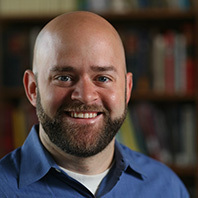Professor Carter Snead featured speaker at most important Science, Technology, and Innovation Conference in Latin America

O. Carter Snead, the Charles E. Rice Professor of Law at Notre Dame Law School and Director of the University of Notre Dame’s de Nicola Center for Ethics & Culture, was a featured speaker at the 2024 Congreso Futuro conference – the most important annual science, technology, and innovation event in Latin America. It was held on January 15-20, 2024 at the CEINA Cultural Center at the Metro University of Chile.
Organized by the National Congress of Chile, the Chilean Academy of Sciences, and La Fundacion Encuentros del Futuro, this international conference brings together Nobel laureates, scientists, researchers, philosophers, historians, physicians, inventors and artists, along with parliamentarians and the public, to debate topics that shape the global public agenda. This year, the conference featured President of Chile Gabriel Boric, Princeton’s Peter Singer, MIT’s Noam Chomsky, and acclaimed filmmaker Werner Herzog, among others. It is attended by more than 45,000 people and receives more than 1 million viewers by online streaming services.
Snead’s presentation, entitled “Remembering the Body: An Ethical Framework for the Regulation of Biotechnology,” offered a new paradigm for thinking about self-governance rooted in reflection on how human embodiment relates to flourishing and what we owe to one another. The talk drew upon the themes of Snead’s book, "What It Means to be Human: The Case for the Body in Public Bioethics" (Harvard University Press, October 2020). Notably, his book (recently reissued in paperback and in Spanish translation) has received widespread recognition, including being named one of the "Ten Best Books of 2020" by the Wall Street Journal and receiving the 2021 Expanded Reason Award. It has been described as “among the most important works of moral philosophy produced so far in this century.”
Snead's expertise in public bioethics—governing science, medicine, and biotechnology in the name of ethical goods—has established him as one of the world’s leading authorities in the field. His research explores bioethical issues including neuroethics, enhancement, human embryo research, assisted reproduction, abortion, and end-of-life decision-making. His contributions have played a key role in shaping and enriching public bioethics discourse domestically and internationally.
Watch Professor Snead's presentation here: